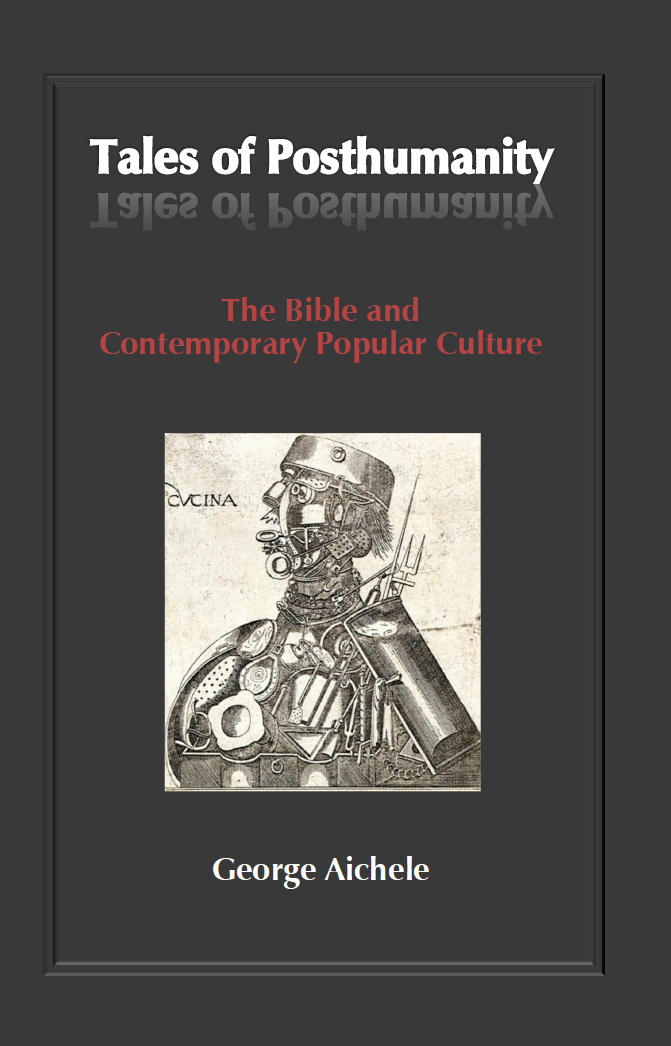Tales of Posthumanity: The Bible and Contemporary Popular Culture
£50.00
Images and concepts of the ‘posthuman’ go back at least as far as the famous ‘madman parable’ in F. Nietzsche’s The Gay Science, and their ‘roots’ go back much further still. In turn, the image or theme of the posthuman has played an increasingly important role in recent literature, film, and television, where the notion of humanity as a ‘larval being’ (G. Deleuze) that transforms itself or is being transformed into something else, for better or worse, has become increasingly common.
Images and concepts of the ‘posthuman’ go back at least as far as the famous ‘madman parable’ in F. Nietzsche’s The Gay Science, and their ‘roots’ go back much further still. In turn, the image or theme of the posthuman has played an increasingly important role in recent literature, film, and television, where the notion of humanity as a ‘larval being’ (G. Deleuze) that transforms itself or is being transformed into something else, for better or worse, has become increasingly common.
This book explores these concepts in relation to biblical texts, particularly texts from the gospel of Mark but also from the books of Daniel, Jonah and Qoheleth (Ecclesiastes), and the Acts of the Apostles. At the same time, texts from recent popular culture are examined, including novels by J. Morrow, C. Miéville and G. Ryman, the movies Local Hero and Lars and the Real Girl, and the Heroes TV series among others.
Through a kind of inverted causality, recent texts in various media such as these transform earlier and otherwise unrelated ones, including biblical texts, into precursors, giving them new, postmodern meanings, just as the older texts once signified in still other ways before the advent of the familiar modern world. As a result, biblical texts signify in remarkably different ways in relation to the posthuman. Posthuman beings appear in both biblical and non-biblical texts, and the biblical phrase ‘sons of men’ (in both plural and singular versions) plays a crucial role, where it too takes on meanings that range far beyond the conventional or traditional ones.
Additional information
| table of contents | PART 1: The Posthuman Condition 1. An Apology for the Madman 2. The Death of ‘Man’ 3. Posthuman Gods PART 2: A Posthuman Gospel 4. The Hidden City 5. The Discourse on Chaos 6. ‘Like Angels in Heaven’ 7. The Will of God. PART 3: Five Recent Tales of Posthumanity 8. Apocalyptic Polytheism 9. Local Heroes 10. Unchrist 11. The Prosthetic Friend |
|---|


Michael Gilmour, Biblical Interpretation. –
Reviewers do not usually remark on a book’s title but in this case it seems a fitting place to start. Inclusion of the term Tales – plural – signals to readers that posthumanity is not something easily reduced to mere definition. A collection of tales, rather than something bolder and more banal (such as The Meaning of Posthumanity) suggests pieces but not the whole, just as Poe’s Tales of the Grotesque and Arabesque offers some imagined horrors but hardly all. Tales of Posthumanity is not, then, a comprehensive, exhaustive, definitive statement on the subject but something closer to a series of vignettes, moments, glimpses, and scenes …
For me, Tales of Posthumanity sparks at those very moments when Aichele presses readers to see things just off center, from a slightly different angle, and thus to consider non-traditional possibilities within the texts. For instance, when discussing hints of the presence of other gods in biblical stories as opposed to angelic inferiors of the one God of canonical monotheism, he notes how most appeal to canonical intertexts to dismiss the idea out of hand. But Aichele pushes forward: “However, if the ‘house’ of the gods is indeed divided against itself, then Jesus’ saying in Mark 3.23–27 takes on quite a different meaning” (p. 40; emphasis added). These “however, if ” moments – and there are a number of them – make this a delightful and provocative collection of studies that permit new possibilities to emerge and open the way for fresh experiences of familiar stories. It is at once intelligent, inventive, playful, and beautifully written.